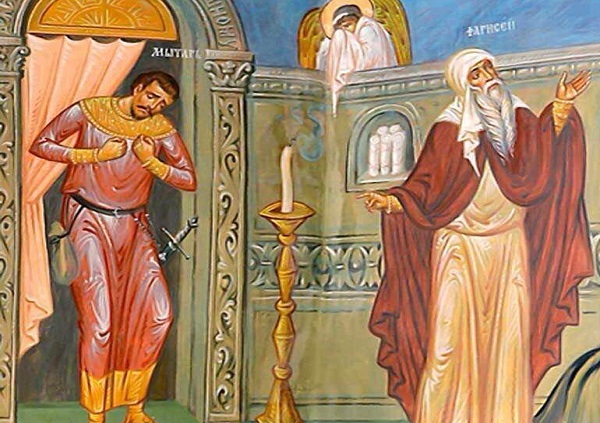The idolization of our self
6 February 2023Many people have made this point: over recent centuries, led astray by philosophical theories, economic dictates and social systems, people have forgotten God and made themselves independent of him. Beguiled by promises of true happiness here in the world and devoted to the pursuit of material goods, they don’t have the strength nor the desire to raise their heads from the clay of their earthly nature so that they can gaze upon their heavenly Father. Even when they’re trapped in their on-going, many-faceted problems and they hear others declare with authority that the crisis isn’t economic but, principally, moral and spiritual, they refuse, in practice, to transform this acceptance into actions which would result in a spiritual resurrection and reverse their chaotic course towards escalating misery.

Besides, since they’re pursuing their own secure comfort, they’re concerned only with personal matters and aren’t interested in society, the country or their neighbors. They think that their sole duty is to look after themselves and act as if everything revolves around themselves. In the end, there comes the conviction that our views and opinions are the only ones that are true and correct, and this completes the process of self-deification, a process which is so different, indeed opposite, from that of our deification by grace, to which we’re called by Christ.
A period of prayer
Today’s Gospel reading [the Pharisee and the Publican] is well-known and familiar. It marks the start of the most spiritual period of the year, a time of preparation for Easter, the greatest feast of the Church. This period takes its name from the Triodio, the liturgical book of the Church which begins from Vespers for the Sunday on which this Parable is read [i.e. Saturday evening] and extends to the evening of Great Saturday, making this a time of increased prayer, in terms of both quality and quantity.
Precisely because this period is an occasion for more intense and fervent prayer, the Church begins it with Christ’s own teaching on the way to pray in a God-pleasing way. The teaching is contained in a story, the most instructive parable of Public and the Pharisee, which has been analyzed so often over the centuries and has sparked so much reflection and so many decisions.
Its main feature is the simply-made point regarding the dangers which obviate prayer and turn it into an insult to God or, even worse, into sacrilege. At the same time, Christ lays out the way in which prayer reaches the throne of God and is pleasing to him; and how the people who pray thus are given grace and proceed on the path towards holiness and glorification.
‘He was praying to himself’
It’s as if Christ had in mind the people of the twenty-first century when he described the Pharisee two thousand years ago. Baldly and clearly, Christ emphasizes that, although the Pharisee was in the Temple, he wasn’t praying to God but to himself, whom he had made into an idol. This is why his prayer was full of conceit and bombast. ‘I’m perfect and all the rest are full of faults. I do even more than is required, the others lag behind and are responsible for the evil in the world. I don’t make any mistakes, I never err. Other people are full of sin, they’re always wrong, and their greatest mistake is that they’re in no hurry to accept me as their superior’. Nowhere is there any perspective of the heavenly kingdom, nowhere the prospect of eternity, nowhere any reference to the Father and brothers and sisters. Instead, a charge is brought against the Father and brothers and sisters as regards the wretchedness of all the other people, who are never in any way thought of as kin.
People have always prayed. The problem is, however: who do they address their prayers to? This problem is particularly prominent today when most people refer to themselves rather than to God. They try to find their own solutions to problems, difficulties and adversities, trust only their own judgement and whatever abilities they have, and are, at the same time, mistrustful of others. But all they achieve by this is to erect even higher walls between them, God, and other people, trapping themselves in isolation and despair.
Our own age has become self-destructive. It’s trained us to believe only in our imperfect and weak self. It denies us the perspective of the spiritual life and our dependence on God and his love. It traps us in the ‘here and now’, burdening us with insoluble problems to the extent that these are all we think about. We waste the time of our life and are deprived of our reference to the source of that life and the cause of our existence. There’s only one way of dealing with this which will save us: kneeling before the icons and saying the prayer of the publican, which is so full of contrition and repentance: ‘God, have mercy on me, sinner that I am’.






